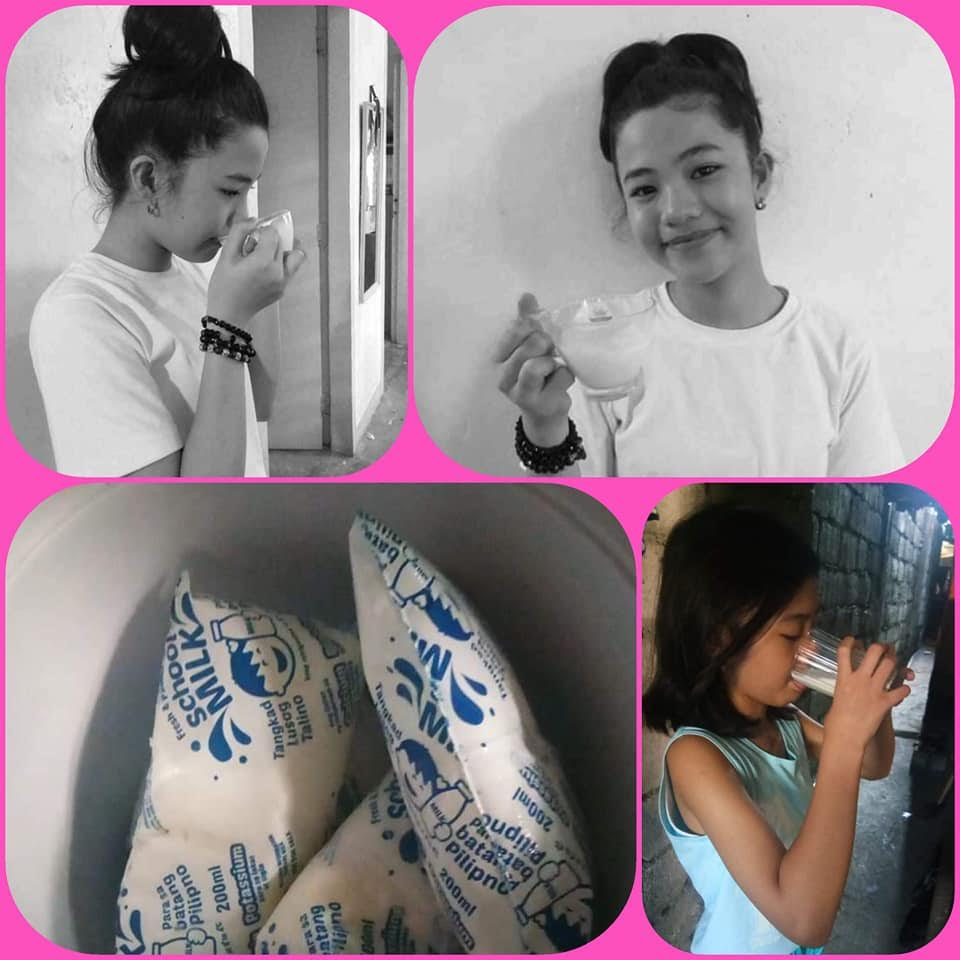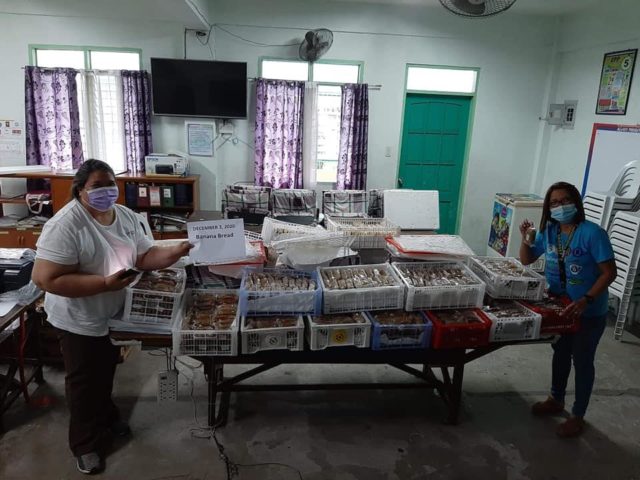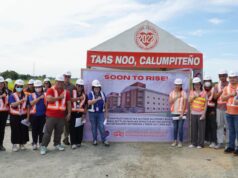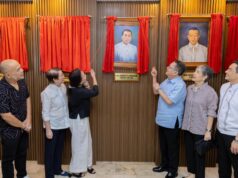Nutritious food products (NFPs) being distributed to parents.
The Department of Education Region III, through its Health and Nutrition Unit, has launched health and nutrition programs for public kindergarten and elementary learners in Central Luzon in line with its prevention measures against COVID-19.
These programs are the School-Based Feeding Program (SBFP) and the Distribution of Learners’ Hygiene Kits for all enrolled elementary students for School Year 2020-2021.
“Despite the pandemic, the DepEd School Health and Nutrition Program continuously advocates healthy habits to our learners even at the confines of their homes. The School Based Feeding Program and Distribution of Learners’ Hygiene Kits is one step towards good health producing better learning,” said Dra. Gladys Lourdes Bengco, DepEd Region III Medical Officer IV.

The SBFP will cover targeted public kindergarten students as well as Grades 1 to 6 students who were deemed to be under “wasted” and “severely wasted” categories based on last year’s health records. It shall provide beneficiaries with nutritious food products—through rationing—for at least 60 feeding days, and fresh or sterilized milk for 50 feeding days. The feeding program has been rolled out in implementing public elementary schools on the last week of November.
The number of beneficiaries for the distribution of nutritious food products for 2020 is 300,818 while the number of beneficiaries for the milk feeding program is 154,297 for 2020 and 319,034 for 2021.
The nutritious food products being distributed to the learners are based on a localized one-month cycle menu and a regional food supply map developed by the Regional SBFP Focal Person to ensure that these are healthy and nutritious for the target beneficiaries. On the other hand, the 20 DepEd Schools Division Offices in the region have partnered with the Philippine Carabao Center and National Dairy Authority for the supply of fresh milk for the Milk Feeding Component.
Based on the SBFP implementing guidelines, schools shall strategize schemes to deliver the nutritious food products and milk packs to the beneficiaries in their homes. Parents may pick up the nutritious food products and milk packs on designated days and time or school personnel may opt to distribute them using school vehicles. School heads may also coordinate with partners such as barangay officials or non-government organizations (NGOs) to distribute the milk packs to the homes of the beneficiaries.
Provision of Hygiene Kits

A total of 1,285,122 public kindergarten and elementary learners in Central Luzon will receive hygiene kits which seek to ensure the health of the Kinder to Grade 6 students enrolled this School Year 2020-2021. The said hygiene kits consist of toothbrush, toothpaste, and soap.
“Hygiene kits are a household-level ORAL and WASH intervention recommended for use during this pandemic responses and other oral health problems that our learners are experiencing. The proper oral health care and good health practices will improve their learning habits as they maintain their personal health in good condition. The distribution of these hygiene kits in all divisions is one of the most important measures that can be used to prevent infection with the COVID-19 virus,” explained Dr. Leoncio del Corro, DepEd Regional Supervising Dentist.
In 2018, DepEd launched the Oplan Kalusugan (OK) sa DepEd that shall focus on major school health and nutrition programs specifically the School-Based Feeding Program (SBFP), National Drug Education Program (NDEP), Adolescent Reproductive Health Education (ARH), Water, Sanitation, and Hygiene (WASH) in Schools (WinS), and Medical, Dental, and Nursing Services.





